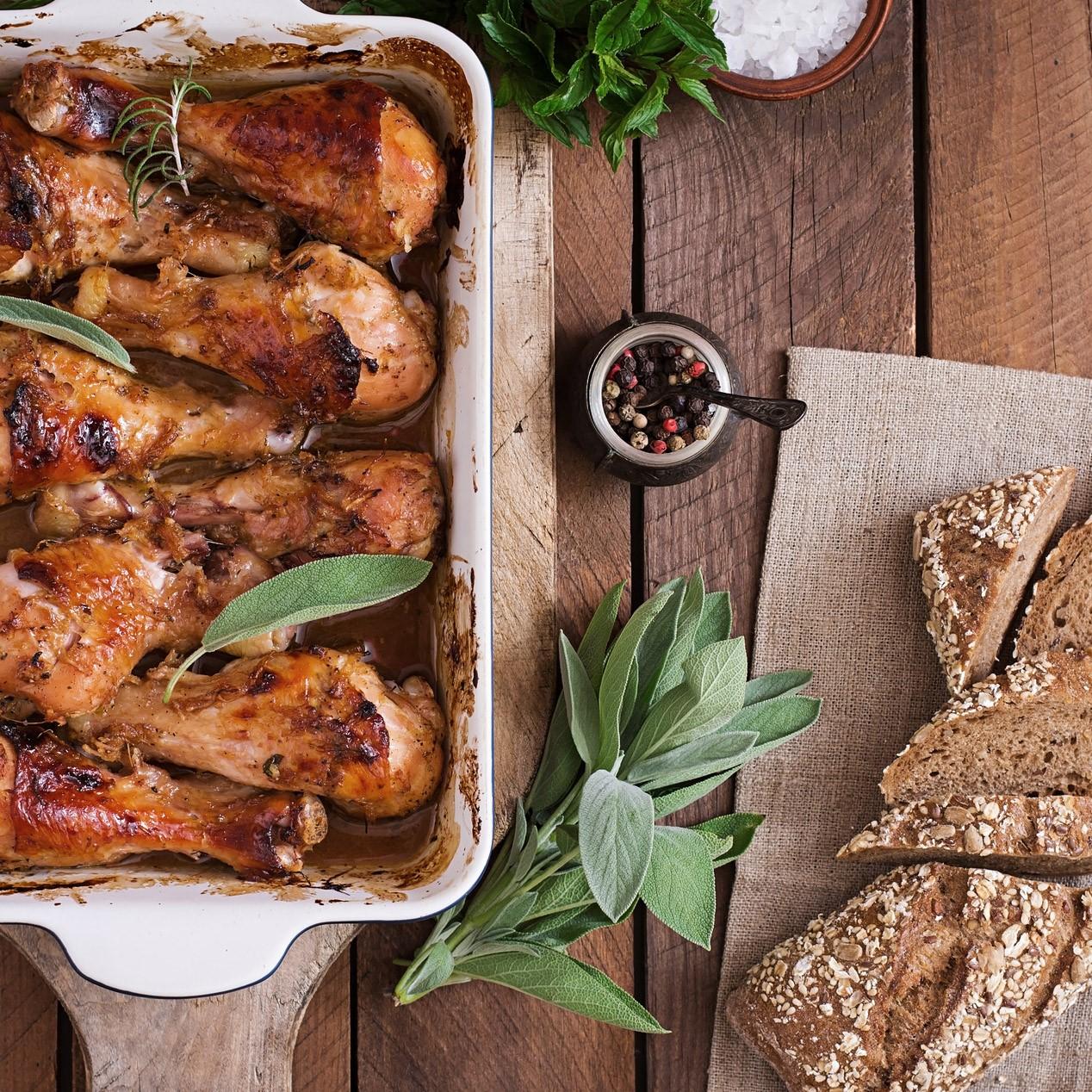
What is the best diet for Crohn's disease?
Peer reviewed by Dr Krishna Vakharia, MRCGPAuthored by Amberley DavisOriginally published 9 Mar 2023
Meets Patient’s editorial guidelines
- DownloadDownload
- Share
- Language
- Discussion
If you're living with Crohn's disease, what you eat during symptom flare-ups can make a big difference to how you feel. Here we look at the best Crohn's disease diet to follow during flare-ups, and how this should change when you're feeling better.
In this article:
Continue reading below
What to eat during a Crohn's flare-up
Crohn's disease is a form of inflammatory bowel disease (IBD) in which one or more parts of your gut become inflamed. There isn't clear evidence that food can cause this chronic condition, but certain foods can trigger symptoms to flare up - which could involve bloating, abdominal pain, and diarrhoea.
What you eat during and in-between flare-ups is important not just for managing your symptoms, but for your overall health. You need to provide your body with the essential nutrients it needs, and for this you need to focus on healthy foods that are easy for your gut to digest.
A Crohn's disease diet that excludes symptom-triggering foods is sometimes called a Crohn's disease exclusion diet, or CDED. A 2022 study found that following a CDED can be an effective way to bring about remission in both adults and children1. Remission describes the periods of time when you are free from the troubling and uncomfortable symptoms of this condition.
You should ask your healthcare expert for advice before undertaking any kind of Crohn's disease diet. People with this condition can have different food triggers and needs, and experts can help make sure that whatever foods you exclude are replaced with ones that contain all the vitamins and minerals you need for a balanced diet.
It may be that you're unsure what your triggers are. For this, a healthcare expert can put you on an elimination diet, in which you cut out certain foods one by one and note down if or when your symptoms change2.
Naomi Leppitt, gut dietitian at Dietitian Fit & Co, talks through the most common foods that can make Crohn's disease flare-ups worse, and what you can eat instead.
Swap to low-fibre foods
"The main thing to avoid during a Crohn's flare-up is fibre," says Leppitt. "When your gut is inflamed, you want to make it as easy as possible for it to digest and absorb food and fluids. Fibre is the indigestible element of plant-based foods - it's found in the skin, seeds, and stalks of fruits and vegetables, as well as whole grains, nuts, and seeds."
Leppitt adds that fibre usually has great health benefits. For example, it can help keep your bowel habits stay regular and formed, and can even improve your blood pressure, blood cholesterol, and blood sugars. However, while your Crohn's disease symptoms flare up, it's best to stick to lower-fibre options.
You can try replacing:
Uncooked fruits like apples, pears, and strawberries.
Hard vegetables like broccoli and collard greens.
Tough gristly meats.
Sugars found in dairy such as milk, soft cheese and cream.
With:
Tinned or cooked fruits, or bananas and melon.
Well-cooked soft vegetables like squash.
Lean protein such as fish, eggs, chicken breast or tofu.
Potato, white rice or sour dough.
Choose plain foods
"You should also stay away from anything too spicy, sugary, or fatty and opt for plainer foods instead," says Leppitt. It's thought that the chemicals in spicy foods can aggravate your gut. It can also be irritated by the fat in highly processed fatty and sugary foods, because this fat can't be absorbed fully by your small intestine.
Leppitt suggests avoiding:
Spicy dishes.
Sweets and fruit juices.
Deep-fried foods and pastries.
And instead eating foods such as:
Casseroles and stews.
Mashed potaoto.
Boiled rice.
Leppit recommends a casserole with peppers accompanied by mash or a cod and prawn stew, with peeled, deseeded courgette and boiled rice on the side.
Avoid alcohol, caffeine, and lactose drinks
Leppitt points out that people with Crohn's disease should also watch what they drink during flare-ups. Alcohol, caffeine, and milk can be particularly triggering.
Alcohol can irritate the lining of your gut and can even cause malabsorption and bleeding. According to the Crohn's and Colitis Foundation, this is why you should always ask your doctor whether drinking alcohol is safe while you are taking IBD medications3. Caffeine acts as a stimulant for bowel movements, which makes diarrhoea worse. The lactose in milk - and other dairy products - is a sugar that can also be difficult for your gut to digest during a flare- up.
Leppitt suggests replacing:
Alcoholic drinks like beer and wine.
Caffeinated drinks like coffee, tea, and Coca-Cola.
Milk.
With:
Water.
Decaffeinated tea - green tea is preferable.
Smooth juices - but beware of too many fruit sugars at once.
Lactose-free milk.
Should you try a liquid diet?
For some people, a Crohn's disease diet may mean temporarily avoiding solid foods altogether. Instead, they consume a formulated liquid made up of essential nutrients including proteins, carbohydrates, and vitamins. However, this may only be recommended if your doctor has advised this and4:
Your symptoms are severe.
You're having difficulty absorbing nutrients.
You've had intestinal surgery.
You have short bowel syndrome.
You should only ever follow a liquid diet under the guidance and supervision of a healthcare expert. If you're really struggling with your symptoms, despite avoiding common trigger foods, Leppitt recommends speaking to your dietitian, IBD nurse, or doctor for more guidance on whether a liquid diet could be right for you, and for getting specific supplements.
What to eat during remission
You should also be mindful of what you eat during the times when your symptoms aren't causing you bother. Leppitt explains:
"The levels in your body of various vitamins and minerals - including zinc, iron, calcium, and vitamins K and B12 - are at risk of being low due to Crohn's disease diarrhoea, poor absorption of nutrients, or the need to avoid certain foods during flare-ups.
"When symptoms are improved and Crohn's is in remission, it's important to reintroduce foods packed with these nutrients."
Focus on maintaining a well-balanced diet with plenty of:
Fibre - such as beans, nuts, and whole grains.
Lean proteins - such as chicken, tofu, eggs, fish, lean meats.
A variety of fruits and vegetables - try to eat as many colours as you can.
It's also important to stay as hydrated as possible with water and rehydration solutions, alongside a Crohn's disease diet.
Continue reading below
Further reading
Nutritional therapy for IBD: Crohn's Disease Exclusion Diet (CDED).
IBD Relief: Liquid diets and inflammatory bowel disease (IBD).
Patient picks for Bowel problems

Digestive health
What it's like to have an invisible disability
In the UK, there are approximately 13.9 million people living with a disability. But only a small percentage have illnesses that can actually be seen. Those living with an invisible disability, like Crohn's disease or multiple sclerosis, suffer from symptoms every day and, because these aren't visible, they're often subjected to discrimination and misunderstanding when they use disabled bathrooms, parking spaces or priority seats.
by Karen Gordon

Digestive health
Crohn's disease in children: How to support your child
When your child has been diagnosed with Crohn's disease there is a lot to take in and it can feel overwhelming - it can take time for family life to adjust. Here, we explain how the condition might affect your child, and share tips and resources to help you and your child cope with the day-to-day challenges.
by Amberley Davis
Continue reading below
Article history
The information on this page is peer reviewed by qualified clinicians.
9 Mar 2023 | Originally published
Authored by:
Amberley DavisPeer reviewed by
Dr Krishna Vakharia, MRCGP

Ask, share, connect.
Browse discussions, ask questions, and share experiences across hundreds of health topics.

Feeling unwell?
Assess your symptoms online for free